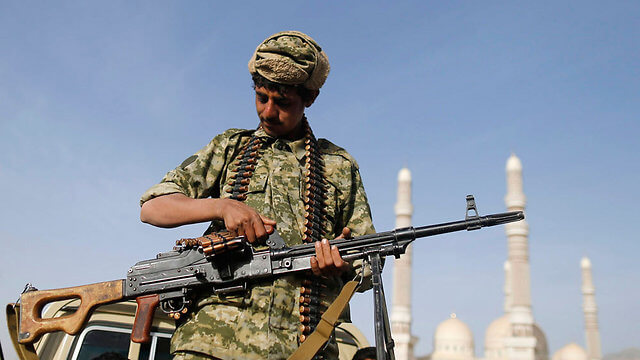As the Israel-Hamas war continues to rage on, the Iran-backed terrorist group in southern Yemen has continued to support the Islamic terrorist group in Gaza, hoping to stretch Jerusalem thin. Amid the conflict, many have asked about the Houthis' origins and their connection with Tehran.
The roots of the Houthi movement can be traced to the 1990s when Hussein Badreddin al-Houthi, a Zaidi Shia religious leader, began rallying followers in Yemen's Saada province.
In the beginning, the Houthi movement was a localized, religious endeavor. However, over time, it evolved into an armed insurgency, responding to the local and regional dynamics in the Middle East.
The association with Tehran can be traced back to the mid-2000s when the Islamic Republic saw an opportunity to exploit the Houthi's grievances and challenge their regional adversary, Saudi Arabia.
Iran's support for the Houthi rebels has included financial aid, weaponry, and military training. As a result, the Houthi movement had the military and financial equipment to stand against the Saudis and American forces.
In 2014, the Houthi rebels, with support from forces loyal to former President Ali Abdullah Saleh, took control of Yemen's capital, Sanaa, marking a significant turning point that prompted a military intervention by a coalition of Arab states, led by Saudi Arabia and the United Arab Emirates, in March 2015.
The coalition's goal was to reinstate the internationally recognized government of President Abdrabbuh Mansur Hadi and push back the Houthi rebels.
The ongoing conflict in Yemen has since escalated into a full-blown humanitarian crisis by the Houthis and Iran.
The toll includes a high number of civilian casualties, massive displacement, and a severe food and healthcare crisis.
The Houthi rebels have recruited child soldiers, committed human rights violations, and launched cross-border missile attacks into Saudi Arabia.
Their control over vital ports and the blockade of Yemeni ports by the coalition have exacerbated the humanitarian crisis.
While the Houthi movement's religious and ideological foundations lie in Zaidi Shia beliefs, their alignment with Iran and the broader regional context has turned them into a proxy force.
Iran views the Houthi rebels to project influence and challenge regional rivals, primarily Saudi Arabia.
In 2021, the Biden administration formally delisted Yemen's Houthi movement as a Foreign Terrorist Organization (FTO). As a result, the Houthis have been treated as an equal partner in the ongoing peace talks with the United Nations.
Today, the Houthis continue to receive support from Tehran, supplying the group with financial and military support against Israel, Saudi Arabia, and the United States.
Related Story: Navy Destroyer Intercepts Missiles Launched from Yemen










